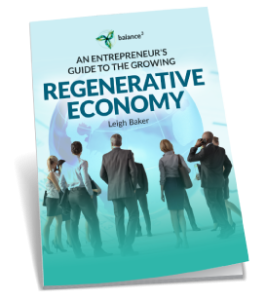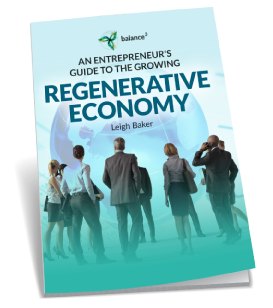What is this thing called “business”?
March 13, 2012
“Business doesn’t listen!” is a regular complaint that I hear in environmental circles – but what IS business? Essentially, business is a group activity – a process. There is no physical thing called business that we can put in a wheelbarrow. We may be able to put a building, a product, a machine or a person in a wheelbarrow…
“I have a dream” for regenerative business
March 4, 2012
A friend connected me to Simon Sinek’s TED talk “How Great Leaders Inspire Action”.
Into the woods: Seattle plants a public food forest
February 28, 2012
Great initiative in Seattle, documented on Grist recently. A great example of smart local approaches to environmental sustainability: “There’s a stretch of arterial in Seattle’s Beacon Hill neighborhood that I’ve traveled probably thousands of times without giving a second thought to the empty, grassy hillside it parallels. When I heard about plans to create a seven-acre…
WANTED: Strategic roles for sustainability managers
February 26, 2012
I saw an interesting-looking role advertised recently: Sustainability Strategy Manager. From the title, it seemed like it could be interesting. Sadly, when I read it, it wasn’t what I’d hoped. The role reported into Marketing and seemed to be more to do with external communication than with building strategic sustainability capability within the business.
5 tips for effective listening
February 25, 2012
The first step in innovation success is listening – really getting to know the people you want to influence. NLP’s model of primary interest filters provides a handy checklist of 5 things to listen for to help you influence. Use this list to identify what interests different people have and how you could interest them in the results you…
Regenerative business: sustainability’s Third Alternative
February 13, 2012
Stephen Covey’s new book “The 3rd Alternative” showed up in my library this week. My first encounter with Mr. Covey was in “7 Habits of Highly Effective People ” and his distinction between “urgent” and “important” tasks has been a key time management tool for me for ever since.
5 Whys for strategic sustainability success
February 8, 2012
Wandering the web the other day, it occurred to me that the continuous improvement process “5 whys” could be a powerful tool for sustainability. I was watching a LinkedIn conversation on the challenges of consumption, and there didn’t seem to be a whole lot of depth to the conversation.
Smart business is service thinking
January 26, 2012
Behind the products we buy is a complex web of businesses that collaborate to make, transport, store, sell and deliver everything that goes in to the final product. This web is often (simplistically) described as “the supply chain”. Each business in a supply chain is a group of people combining a range of skills, ideas and…
Recovering meaning: language tools and sustainability
January 25, 2012
Listening to a passionate sustainability campaigner recently, I suddenly found myself back in class – more than a decade in the past. I was in my NLP Practitioner Training and we were talking about language. Whatever your background, if you’re into coaching you understand just how much the language we use limits our experience and…
Three keys to successful innovation
January 23, 2012
So you’ve got a great idea, and you’ve come up with a proposal that will meet the needs of the people you want to use it. Your work here is done… isn’t it? Well, no – not until you have your invention turned into an adopted practice – that’s the real work of innovation. Your…
Pilkington Glass – the benefits of strategic sustainability
October 15, 2007
On 30th August, I listened to Malcolm Deery of Pilkington Glass speak at a breakfast on “The Economics of Climate Change” at the Shire of Yarra Ranges. Malcolm told an amazing story about the positive, strategic approach to sustainability taken by Pilkington, and how it had benefited the business:
Letting Your Product Go!
May 15, 2007
Marketing basics – products and value A core concept in marketing is the difference between your product and it’s value. What’s the difference between the item you are selling and its worth to your customer? If you sell someone perfume, are they buying the scent in the bottle, the promise of romance, or the prestige of your label? An accountant’s product might…
Want to know more about the opportunities and how to find them?
biomimicry blue economy circular economy climate solutions Communication community renewables deep green profit Doughnut Economics Influencing innovation delivery innovation diffusion Interface neuroeconomics ontological coaching positive psychology Project Drawdown Project Regeneration regenerative business renewable energy systems thinking


